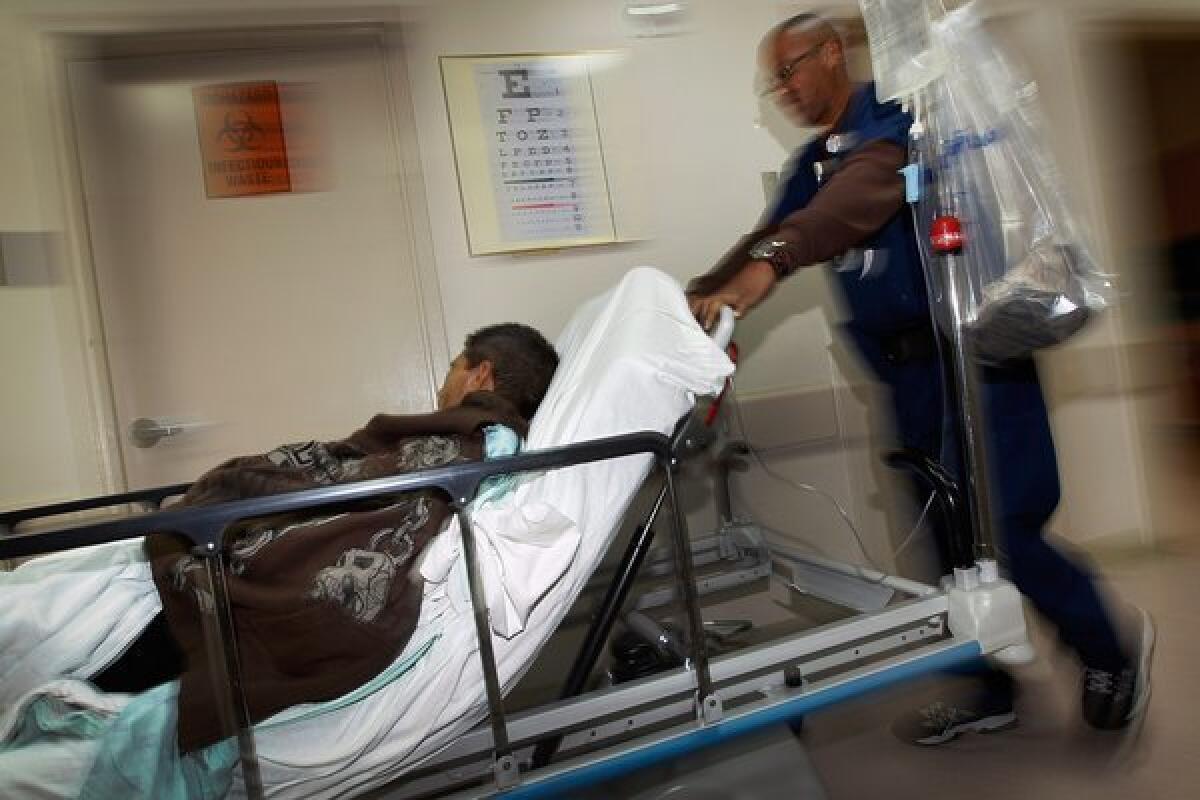Hospitals getting better at treating cardiac arrest

- Share via
Hospitals have gotten far better at treating cardiac arrest, according to a study published Wednesday in the New England Journal of Medicine, reducing both deaths and neurological damage as a result.
The study looked at more than 80,000 patients in 374 hospitals who suffered a cardiac arrest while in the hospital from 2000 to 2009 to determine whether rates of survival or the incidence of serious side effects had changed. In particular, the researchers were interested in the percentage of patients who survived long enough and got healthy enough to be discharged from the hospital after the incident.
The researchers found that the rates of survival to hospital discharge after cardiac arrest increased significantly, from 13.7% in 2000 to 22.3% in 2009. What’s more, the rates of neurological disability also dropped, from 32.9% of survival cases in 2000 to 28.1% in 2009. That statistic is significant because the authors had feared that increased survival might mean increased rates of disability among those patients because cardiac arrest deprives the brain of blood flow.
So what changes are responsible for the improvements? While the study did not allow the researchers to know for sure, they suggest several possibilities, including more rapid recognition that a cardiac arrest is occurring and improved resuscitation practices on the part of doctors and hospital staff.
The authors also point to post-resuscitation care as a potential driver of the change in disability after cardiac arrest. In particular, hospitals have begun to use cooling — often in the form of ice packs around the body — to lower the body temperature of patients who have undergone cardiac arrest. This can slow the damage caused by lack of blood flow to organs, especially the brain, because a colder body undergoes its various biological tasks more slowly. This can give the body time to recover.
The results show that there’s never been a better time to have a cardiac arrest in a hospital — though we still wouldn’t recommend it.
Return to the Booster Shots blog.






